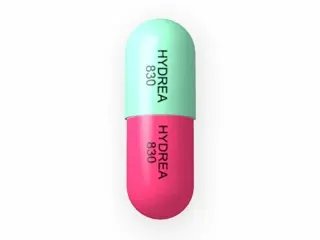Cancer
Find effective cancer care medications and supportive treatments to aid your health journey. Shop trusted pharmaceutical products designed to support cancer treatment and improve quality of life.
Cancer is a complex disease that requires various treatment options. Medications in the cancer category address different types and stages. These drugs help control, shrink, or stop cancer growth. They may also relieve symptoms caused by the disease or its treatment.
Aldara is an immune response modifier. It is often used for skin cancers and precancerous lesions. It activates the immune system to attack cancer cells. It is applied topically and is generally well tolerated. Side effects may include redness, swelling, and irritation at the application site.
Alkacel contains alkylating agents. These drugs interfere with DNA and prevent cancer cells from multiplying. They are used in treating blood cancers and solid tumors. Alkacel can cause side effects such as nausea, fatigue, and lowered blood cell counts. Monitoring by a healthcare provider is essential during treatment.
Armotraz is a targeted therapy drug. It works by blocking specific proteins that cancer cells need to grow. It is mainly used in breast cancer patients with hormone receptor-positive tumors. The medication helps to slow disease progression and improve survival rates. Common side effects include hot flashes, joint pain, and headache.
Capnat, another oral chemotherapy, belongs to the category of capecitabine drugs. It mimics a building block of DNA to disrupt cancer cell function. Capnat is typically used for colorectal and breast cancers. Side effects may include diarrhea, hand-foot syndrome, and fatigue. Regular blood tests help detect toxicity early.
Casodex is an anti-androgen drug. It is prescribed mainly for prostate cancer. Casodex blocks the action of male hormones that stimulate prostate cancer growth. This helps to slow down tumor development. Side effects may include breast swelling, liver changes, and gastrointestinal discomfort.
Hydrea, or hydroxyurea, is a chemotherapy agent that inhibits DNA synthesis. It is used in certain blood cancers like chronic myeloid leukemia and some solid tumors. Regular monitoring is needed due to side effects such as low blood counts, skin ulcers, and headaches. It is also used to manage symptoms in other blood disorders.
Leukeran is a classic chemotherapy drug that alkylates DNA. It is mainly used in lymphomas and chronic lymphocytic leukemia. Leukeran can cause bone marrow suppression, leading to decreased blood cell production. Patients often experience nausea, vomiting, and risk of infections.
Methotrexate is a widely used chemotherapy and immunosuppressant drug. It inhibits folic acid metabolism necessary for DNA synthesis. Methotrexate treats various cancers, including leukemia, breast, and lung cancers. High doses can cause liver toxicity, mouth sores, and kidney damage. Close monitoring and folinic acid rescue therapy reduce risks.
Nolvadex, or tamoxifen, is a selective estrogen receptor modulator. It is commonly prescribed for estrogen receptor-positive breast cancer. Nolvadex blocks estrogen effects to prevent tumor growth. It is effective in both early and advanced breast cancer. Side effects include hot flashes, increased risk of blood clots, and uterine changes.
Xeloda is an oral chemotherapy drug known generically as capecitabine. It converts to 5-fluorouracil in the body and disrupts DNA synthesis in cancer cells. Xeloda is used in colorectal, breast, and gastric cancers. Toxicities include hand-foot syndrome, diarrhea, and low blood counts. Dose adjustment is often required based on tolerance.
Zofran is an antiemetic medication frequently used in cancer patients. It prevents nausea and vomiting caused by chemotherapy. Zofran works by blocking serotonin receptors in the brain and gut. It improves patients’ quality of life during aggressive cancer treatments. Side effects are generally mild, including headache and constipation.
In summary, cancer medications target disease through various mechanisms. Some act by damaging cancer DNA, others block hormone effects or enhance immune responses. Adverse effects are common but manageable with proper care. Patients should be monitored closely during therapy. Each medication plays a unique role depending on cancer type and stage.
Choosing the right medication depends on cancer characteristics and overall patient health. Doctors tailor treatment plans to maximize benefits and reduce risks. Supportive care drugs like Zofran help patients tolerate treatment better. Advances in cancer drugs continue to improve survival and quality of life.
Always consult healthcare providers before starting or changing cancer medications. They will assess suitability, dose, and possible interactions. Patient education about side effects is crucial for prompt management. Adherence to prescribed regimens is important for treatment success.
Cancer medications require careful handling and storage. Follow pharmacy guidelines and keep drugs out of children’s reach. Report any unusual symptoms promptly to healthcare professionals. Effective cancer treatment combines medications, monitoring, and supportive care.










